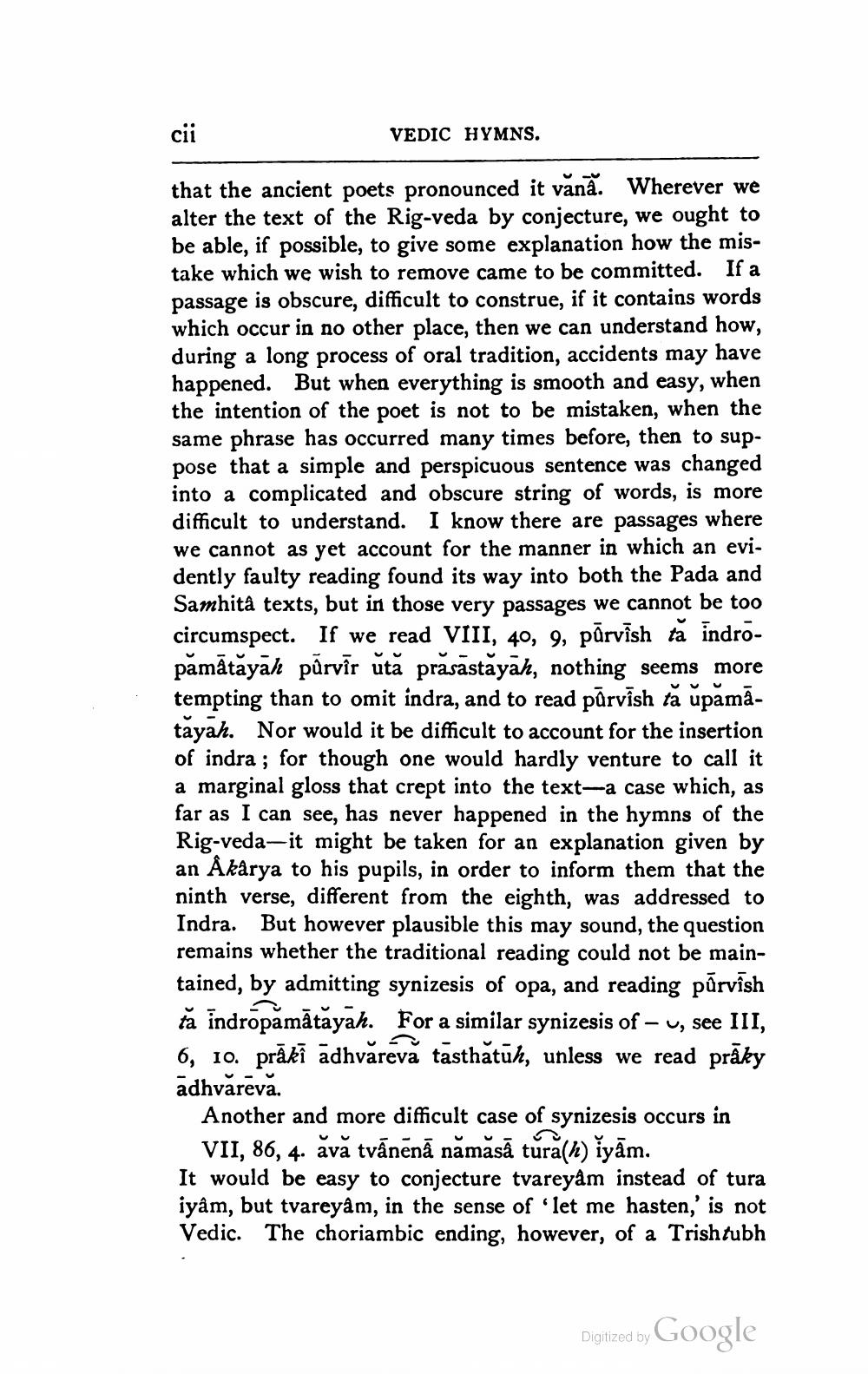________________
cii
VEDIC HYMNS.
that the ancient poets pronounced it vana. Wherever we alter the text of the Rig-veda by conjecture, we ought to be able, if possible, to give some explanation how the mistake which we wish to remove came to be committed. If a passage is obscure, difficult to construe, if it contains words which occur in no other place, then we can understand how, during a long process of oral tradition, accidents may have happened. But when everything is smooth and easy, when the intention of the poet is not to be mistaken, when the same phrase has occurred many times before, then to suppose that a simple and perspicuous sentence was changed into a complicated and obscure string of words, is more difficult to understand. I know there are passages where we cannot as yet account for the manner in which an evidently faulty reading found its way into both the Pada and Samhità texts, but in those very passages we cannot be too circumspect. If we read VIII, 40, 9, pārvīsh tă indropămātayah pūrvīr ută prasastayah, nothing seems more tempting than to omit indra, and to read pārvīsh ta upamātayah. Nor would it be difficult to account for the insertion of indra; for though one would hardly venture to call it a marginal gloss that crept into the text-a case which, as far as I can see, has never happened in the hymns of the Rig-veda- it might be taken for an explanation given by an Akarya to his pupils, in order to inform them that the ninth verse, different from the eighth, was addressed to Indra. But however plausible this may sound, the question remains whether the traditional reading could not be maintained, by admitting synizesis of opa, and reading põrvīsh tă indropamātayah. For a similar synizesis of - v, see III, 6, 10. prākī adhvărevă tasthatūh, unless we read prāky adhvărevă.
Another and more difficult case of synizesis occurs in
VII, 86, 4. ăvă tvãnenā nămăsā túra(k) iyām. It would be easy to conjecture tvareyam instead of tura iyâm, but tvareyâm, in the sense of let me hasten,' is not Vedic. The choriambic ending, however, of a Trish tubh
Digized by Google




